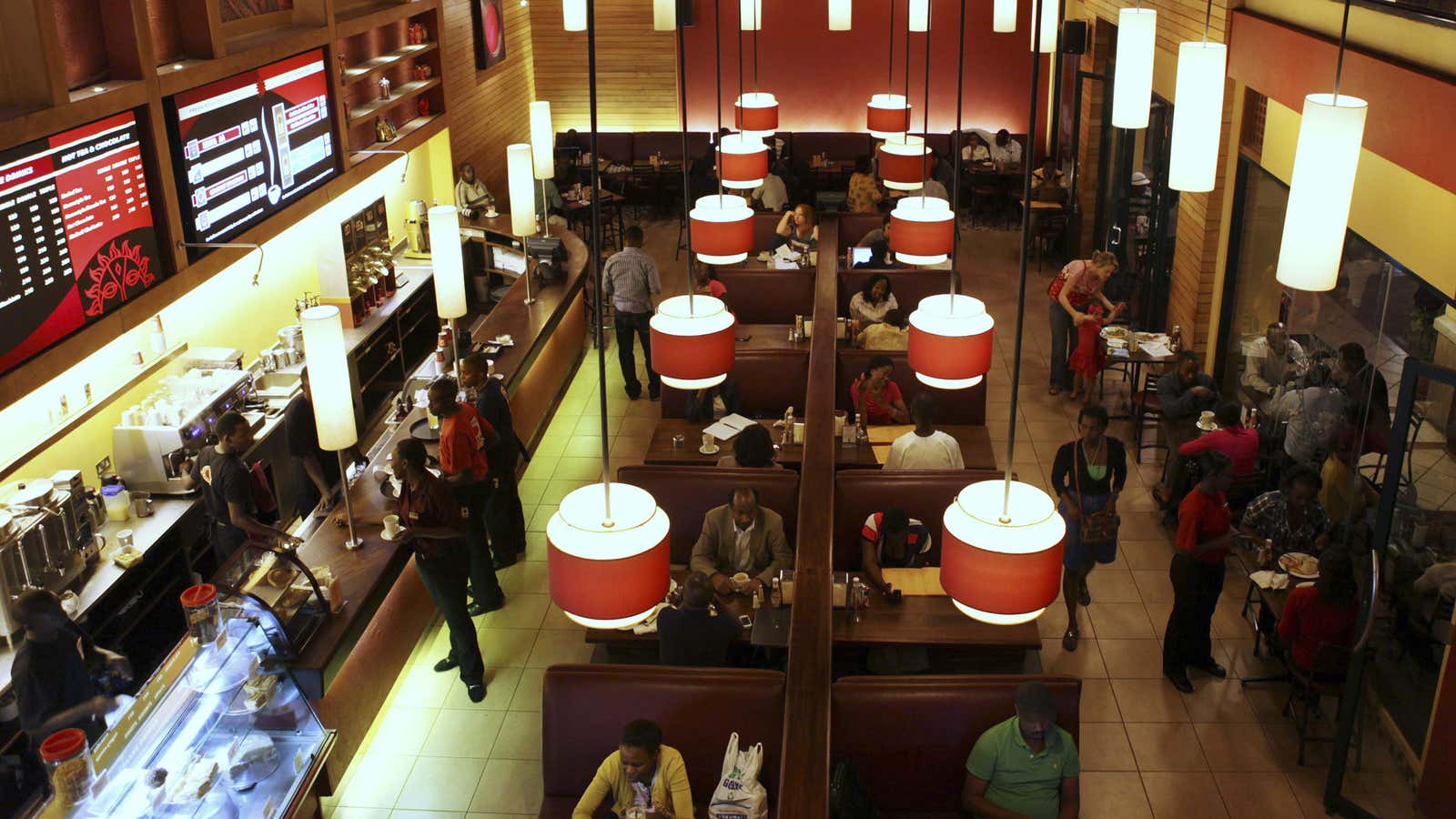Java House, east Africa’s largest chain of coffee shops, is changing hands yet again.
This time, the growth markets fund Abraaj Group is buying the company from the Washington DC-based Emerging Capital Partners (ECP) for an undisclosed amount. In February, US private equity firms—TPG and Carlyle—were among investors who bid as much as $100 million for the coffee shop chain.
Abraaj says it’s betting on the continent’s expanding middle class, sustained population growth, and increasing urbanization to expand the east, west, and north Africa, and through other buyouts.
After decades as the home of some of the world’s major coffee exporters, coffee consumption is on the rise across the continent. Traditionally, Ethiopia was one of the only African countries with a coffee-drinking tradition. But now there is a growing coffee culture among the middle class and well-traveled of other countries. Starbucks launched its first sub Saharan Africa store in Johannesburg last year.
Java House has recorded fast growth since it was first opened in 1999 by two Americans, Kevin Ashley and John Wagner. In 2012, ECP bought a 90% stake in the company from the founders—effectively growing the company from 13 outlets in Nairobi to more than 60 stores across 10 cities in Kenya, Rwanda, and Uganda. Java now employs more than 2,000 people and serves upward of 320,000 diners every month. The group also launched Planet Yogurt, the region’s first self-service frozen yogurt chain, and the pizzeria outlet, 360 Degrees.
The acquisition of Java House Group will be seen as a bellwether to private equity’s interest in markets across Africa. It’s also the latest example of the rise in private equity exits in Africa to other private equity or financial buyers. Last year, private equity exits hit a record high of 48 deals with 17 of those being financial sale exits. That was up from a previous high of seven in 2015, according to trade body AVCA. The illiquidity of most African stock exchanges means they are unable to support many initial public offerings and there are also fewer strategic buyers. It means private equity is often the only option.
*Correction: A previous version of this story had used trade exit numbers instead of financial sale numbers.
